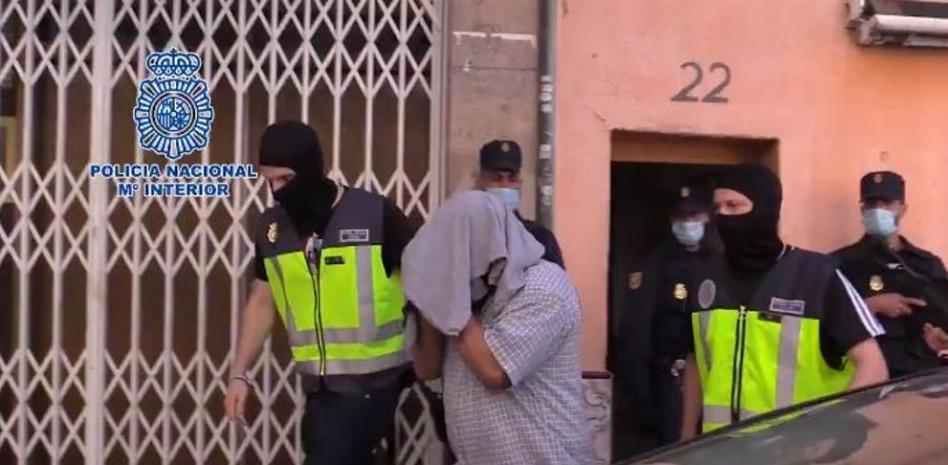The National Court has sentenced three brothers who created a jihadist indoctrination cell and who incited a man to travel to Syria to fight and was killed in a bombing to eight years in prison for joining a criminal organization. The Khalid brothers, Ben Gacim and Hicham Langhari, of Moroccan origin, were arrested by the Police in July 2020.
The First Section considers it proven that the accused were part of a cell belonging to the radical Islamist group Hizb Ut Tahrir al Islami, located in Badalona (Barcelona), which “procured the recruitment and indoctrination of people in that and other nearby towns in order to instruct them and radicalize them in the jihadist ideology”.
Once these people have been captured and the radicalization process has been completed, “they would have to be sent to these conflict zones to commit, if necessary, all kinds of violent and terrorist actions.” The ultimate goal was to establish in Syria “the Islamic caliphate under the only law of Islam, the Sharia.”
The defendants carried out their work of recruiting and indoctrinating through meetings in homes or public places in Badalona and for their task they had various materials with radical jihadist content, as well as access to various Internet sites where they participated in forums in which it promoted and justified Islamic jihad and the need and obligation to impose the universal caliphate.
The court presided over by Francisco José Vieira considers it proven that they indoctrinated a neighbor of his from Badalona who began his knowledge of the jihadist ideology in prison and who, upon leaving prison, at the indication of the convicts, traveled to Syria via Turkey to fight together with organizations terrorists. In that country, says the sentence, he died after being the victim of a bombing.
The Chamber has based its prosecution evidence on the statement of a protected witness, on the police surveillance, the documentation and the computer media seized from the three defendants, as well as on the handwritten agenda of the deceased in Syria that indicated his radicalization and that was He had gone to fight in that country.
During the trial, the defense asked to know the identity of the incriminating witness, which was refused. The witness, childhood friend of the deceased and who witnessed his indoctrination, testified without being seen and with a distorted voice. His testimony started the police investigation and is one of the central elements of the conviction.
Nor did the defense get the defendants to be the last to testify and not the first, in addition to sitting next to their lawyer to be able to consult him.
The sentence is very close to the nine years in prison demanded by prosecutor José Perals. The eight years imposed are the minimum sentence for the crime of belonging to a criminal organization. The defense can still appeal the conviction before the Appeals Chamber of the National High Court itself and, subsequently, before the Supreme Court.
Conforms to The Trust Project criteria
















